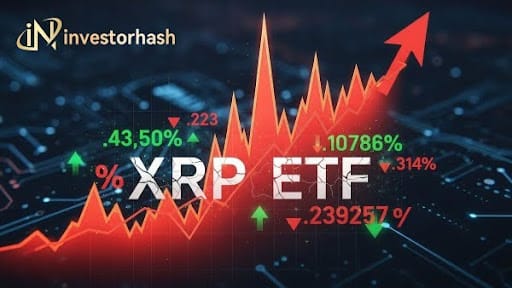Paul Atkins Reverses SEC Stance on Tokens While Supporting Super App Platforms

US Securities and Exchange Commission Chair Paul Atkins declared that "most crypto tokens are not securities" during a keynote address at the Organization for Economic Cooperation and Development Roundtable in Paris on Wednesday. According to Cointelegraph, Atkins outlined a sweeping plan to integrate crypto activities like trading, lending and staking under a unified regulatory framework.
"It is a new day at the SEC," Atkins said during the September 10 presentation. The chair contrasted his approach with the previous administration's enforcement-heavy strategy, stating that "policy will no longer be set by ad hoc enforcement actions." He promised the agency would "provide clear, predictable rules of the road so that innovators can thrive in the United States."
Under the Project Crypto initiative, the SEC aims to modernize its securities regulations to accommodate blockchain-based financial markets. Atkins referenced the President's Working Group on Digital Asset Markets, which has delivered what he called a "bold blueprint" to support this regulatory transformation. This clarity comes as Congress requires Treasury to study Bitcoin reserve implementation, signaling broader government acceptance of digital assets.
Why This Regulatory Shift Matters Now
This position represents a complete reversal from former SEC Chair Gary Gensler, who consistently argued that the "vast majority" of cryptocurrencies were securities requiring regulatory oversight. The change directly affects thousands of crypto projects that faced potential enforcement actions under the previous administration's approach.
Atkins' regulatory pivot aligns with growing institutional confidence in cryptocurrencies. We previously reported that 71% of global finance executives believe Bitcoin will replace the USD as the primary reserve currency within five years, with 36% citing the weaponization of the dollar through sanctions as a key driver. This survey of 500 finance leaders revealed that regulatory fragmentation was their primary concern - precisely the issue Atkins aims to address through unified standards that support innovation while providing clear compliance pathways.
The new framework allows platforms to operate as "super-apps" that can facilitate trading, lending and staking of digital assets under one regulatory umbrella. Bernstein called this "the boldest and most transformative crypto vision ever laid out by a sitting SEC chair." These platforms will also have flexibility to offer multiple custody solutions, including self-custody options. The timing coincides with Michael Saylor's Strategy expanding Bitcoin holdings to 638,460 BTC, demonstrating corporate confidence in the evolving regulatory landscape.
Atkins stated his belief that "regulators should provide the minimum effective dose of regulation needed to protect investors, and no more." He added that agencies "should not overburden entrepreneurs with duplicative rules that only the largest incumbents can bear." We previously reported that regulatory clarity has become a key factor in global Bitcoin policy rankings, with effective frameworks sharing common attributes like clear legal classification and proportionate compliance requirements.
Industry and International Implications
The regulatory shift positions the United States to compete more effectively with international frameworks like the European Union's Markets in Crypto-Assets regulation. Atkins praised the MiCA framework as providing "a comprehensive digital assets regime" and noted that US policymakers could learn from Europe's early regulatory steps. This contrasts with Vietnam's new crypto pilot requiring $379 million minimum capital for service providers, showing diverse global approaches to crypto regulation.
Fortune reported that this approach aims to reverse the crypto industry exodus that occurred under previous enforcement policies. The crypto industry had raised hundreds of millions of dollars to back pro-blockchain candidates in the 2024 election, including Donald Trump, after being "aggrieved by Gensler's campaign" of aggressive enforcement actions.
However, the approach faces skepticism from consumer protection advocates. Dennis Kelleher, CEO of Better Markets, warned that "Wall Street's megafirms and politically favored companies will be protected while investors will be left to protect themselves." Meanwhile, the European Banking Authority has moved in the opposite direction, requiring EU banks to hold substantially more capital against unbacked cryptocurrencies like Bitcoin and Ether through a 1,250% risk weight.
The SEC chief called for international cooperation to "facilitate more innovative markets," suggesting that cross-border collaboration could help establish consistent standards. As Atkins concluded, "Working together, as Alexandre de Tocqueville might have put it, we can 'extend the sphere' of freedom and prosperity."




